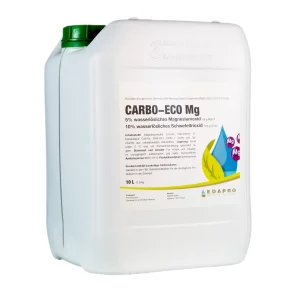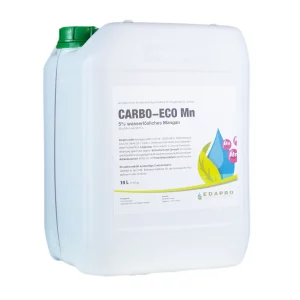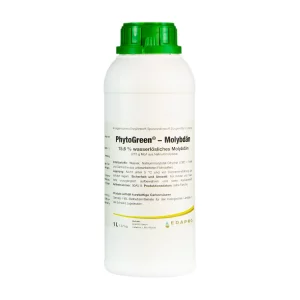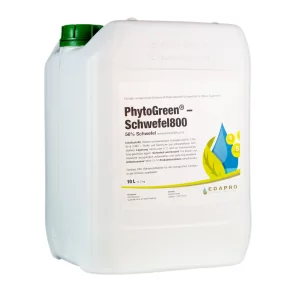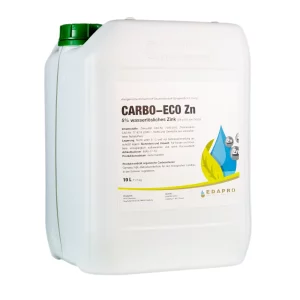Foliar fertilisers for plant supply
Chelated foliar fertiliser for direct nutrient supply to all crops.
Can be combined with compost tea or other fertilisers.
Mode of action and benefits
Our chelated foliar fertilisers are specifically designed for foliar application and contain nutrients in a highly bioavailable form. The chelation process improves nutrient uptake and utilisation, resulting in faster and more efficient nutrient delivery to each leaf.
Application to the foliage can quickly counteract acute nutrient deficiencies and improve plant health.
The application of our foliar fertilisers can be combined with other foliar fertilisers and compost tea.
The chelation
A chelate is a chemical compound in which a metal ion is bound to a larger organic molecule, the chelating agent. This bond forms a complex that is both stable and soluble. The chelating agent usually forms multiple bonds with the metal ion, creating a ring-like structure. This unique structure of the chelate increases the stability and bioavailability of the metal ion and prevents it from precipitating or becoming inaccessible to plants or organisms.
Straight fertiliser
Plant nutrition - the driver of soil regeneration
Plant nutrition is a crucial factor for soil regeneration and regenerative agriculture. Practices such as no-till, ground cover, integration of livestock, cover crops, biodiversity and continuous living roots are important, but overlook the importance of plant nutrition.
The nutrient content of plants affects their ability to photosynthesise and sequester carbon. Insufficient levels of nutrients such as manganese, magnesium, phosphorus, nitrogen and iron directly impede photosynthesis and limit carbon fixation and sugar conversion.
Photosynthesis depends on water, carbon dioxide, sunlight, chlorophyll-containing leaves and a balanced mineral supply. Unfortunately, in outdoor agriculture, the supply of carbon dioxide and minerals is often neglected, resulting in plants photosynthesising far below their potential.
In addition to microbiome management, we at EDAPRO have recently been focusing on plant nutrition to improve plant immunity and crop yields. Data from plant sap analyses show widespread nutrient imbalances such as manganese, iron and magnesium deficiencies, as well as deficiencies in zinc, copper, boron, cobalt, sulphur and silicon. Correcting these imbalances immediately improves photosynthetic activity, resulting in higher yields and better pest resistance.
Contrary to the assumption that growing crops depletes soil carbon, we can increase soil carbon while growing any crop by effectively managing plant nutrition and optimising photosynthesis and immune function.
The variability of photosynthesis is often overlooked in carbon sequestration research. The transfer of plant photosynthetic products to the soil in the form of root exudates varies greatly depending on factors such as plant species, growth stage, microbiome and soil environment. Maximising photosynthetic efficiency could dramatically increase carbon transfer to the soil.
Increasing photosynthesis not only increases yields, but also reduces the need for fertilisers and pesticides. By prioritising the integrity of plant nutrition, we can promote soil regeneration and provide immediate economic benefits to farmers, grape growers and turf and arborists.
Identifying nutrient deficiencies on time
Plant sap analysis shows the current nutrient supply in the plant. It reveals nutrient surpluses and deficiencies before symptoms can be observed.


